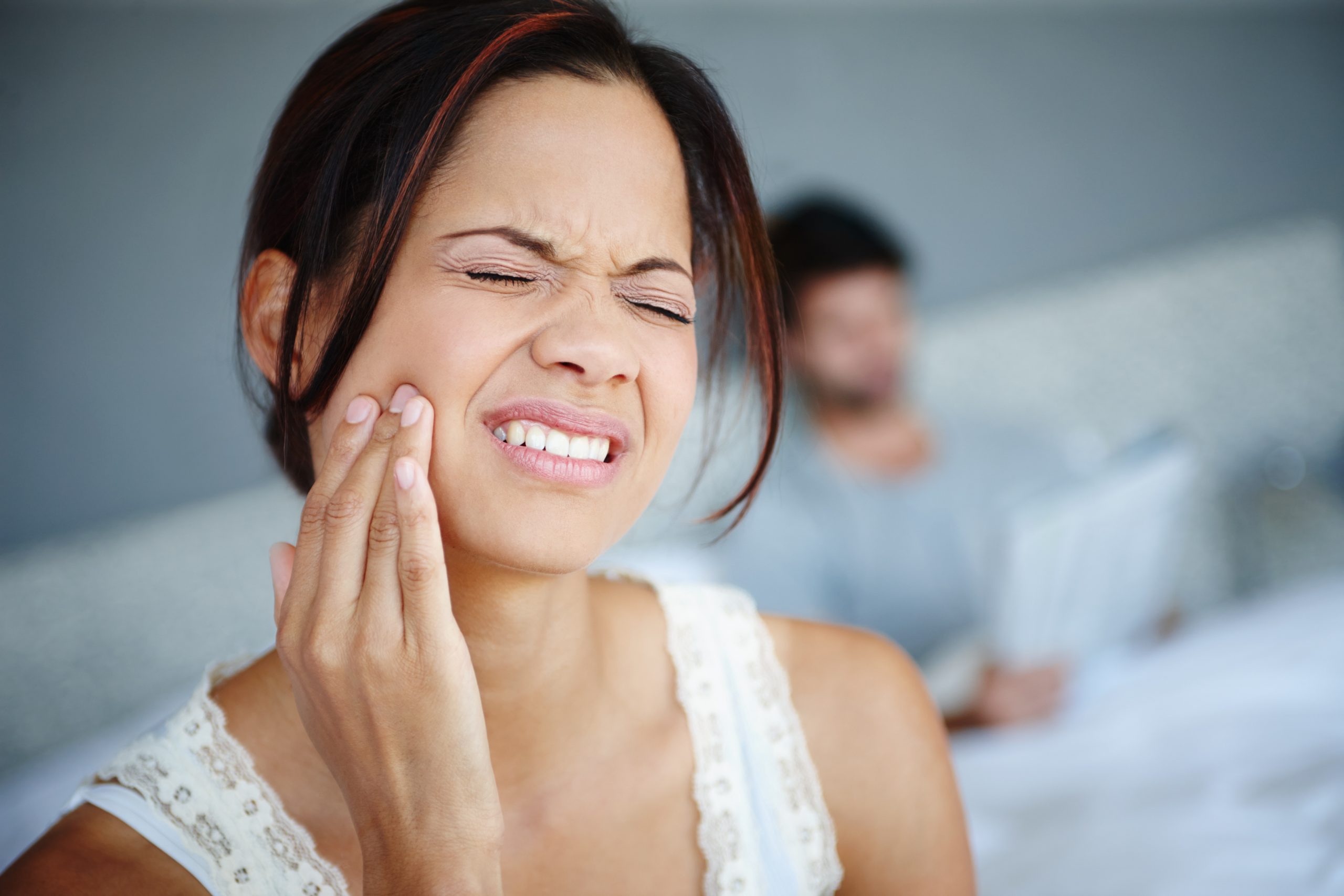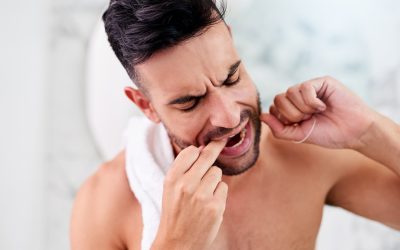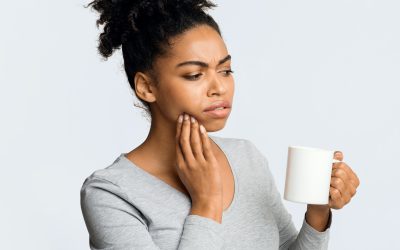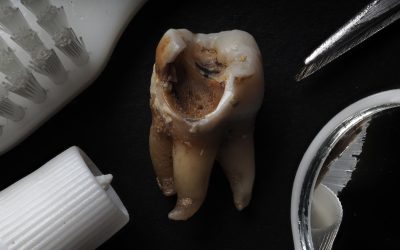Healthy teeth are an important part of overall well-being, yet the journey to maintaining them isn’t always pain-free. In this blog, we delve into the intricate connection between oral hygiene and tooth discomfort. Understanding the significance of a robust dental care routine is crucial to preserving not just your smile, but your overall health. Join us as we explore the myriad reasons behind tooth pain and the pivotal role of preventive dental care in safeguarding your oral health.
Common Reasons Why Your Tooth Hurts
Since your tooth/teeth can start hurting for many reasons, we’ve compiled the main ones and discussed solutions below:
- Exposure to extreme heat or cold
- Gum recession
- Enamel (dentin) erosion
- Tooth decay (cavity)
- Gum infection
- Cracked tooth or crown
- Sinus infection
- Grinding or clenching teeth
- Dental procedures
- Teeth bleaching products
- You Overdo Oral Rinses, brushing or flossing
- Nerve Damage
- Wisdom teeth complications
Disclaimer: Toothaches can happen due to one or a combination of reasons. While there are probable reasons behind a tooth/teeth hurting (given the specific circumstance), we encourage people to avoid self-diagnosis. The information offered below should be treated as general advice, with the best solution being to book a consultation and seek a diagnosis from an experienced dentist.
Reasons Why Your Tooth Hurts – Based on Specific Scenarios
The reason behind a toothache may vary based on where the pain is felt (front/bottom teeth, etc.), the type of pain (i.e., sensitivity), when the pain is felt (regularly or when eating/chewing), etc. Let’s discuss this in more detail.
1. Front Teeth Pain
If you feel pain in your front teeth, it may be due to a tooth infection, tooth injury/trauma cavity, tooth grinding, chipped or cracked teeth, worn down teeth, or another of the reasons we’ve mentioned in our list. If you can’t find a specific reason with certainty, consider visiting a dentist.
2. Why Are All My Teeth Sensitive All of a Sudden?
In many instances, sudden sensitive teeth are linked to dental products such as teeth bleaching or whitening products. If you just started using such products and experience sensitivity, stop using them immediately and see if you notice any change.
Other causes of sudden tooth sensitivity can include certain foods or drinks. Eating or drinking acidic foods can cause sensitivity. Citrus fruits and drinks, cold foods (like ice cream), cold drinks, hot foods, and sweets are other common elements linked to sensitive teeth[1]. Stop consuming such foods/drinks to see if they are the source of your sensitivity.
If the above causes don’t apply then you should evaluate your oral hygiene. Think about how often you brush or floss your teeth. Ideally, you should brush after meals (at least twice a day) and floss at least once daily. You should also seek routine professional cleaning to get rid of plaque and tartar that can’t be eliminated by brushing.
Incorporating a good oral hygiene regimen should help to get rid of the sensitivity. Otherwise, you should visit a dentist.
3. Tooth Pain on Biting
Tooth pain when you bite is an obvious sign of an underlying problem. Research suggests many factors could be to blame, the most notable being [2]:
- Cavity: A hole in your tooth could be the source of sensitivity and other symptoms like dental pain when you bite or chew food.
- Injury or trauma: Blunt force exerted on a tooth can cause damage, resulting in a cracked or broken tooth that hurts when you bite.
- Malocclusion: If you have crowded teeth, overlapping teeth, and/or misaligned teeth that don’t fit well together, they may get worn and cause pain when you bite. The pain can also originate in the jaw.
- Periodontitis (gum disease): Teeth pain can also be linked to periodontal disease i.e., periodontitis characterized by serious gum infection and weak teeth. The pain is accompanied by other common symptoms like bad breath and bleeding gums.
- Recessed gums: Receding gums can also cause tooth pain when you bite. This condition occurs when the gum tissue pulls back, exposing more teeth enamel over time. The exposed tooth root can also become very sensitive.
- Loose tooth filling or tooth crown: A poorly done filling can cause a serious bacterial infection beneath the filling/crown, resulting in sharp pain when you bite down.
4. Why Do My Bottom Teeth Hurt?
As with front teeth, there’s no specific factor to blame for pain experienced on bottom teeth. As an example, it could be linked to an infected root. Tooth root infections can cause throbbing pain that is gradual or sudden [3]. The pain can also be linked to inflamed gums when accompanied by other symptoms like chronic tooth sensitivity.
“Referred pain” could also be to blame if another tooth is hurting, which causes other adjacent teeth to hurt. Since there’s no single explanation and pain at the bottom front teeth vs. bottom back teeth could be linked to different factors, it’s advisable to visit a dentist and get to the root cause of the pain.
5. Teeth Hurt After Brushing
Research suggests that tooth sensitivity could be to blame if you feel pain after brushing [4]. Underlying causes include tooth enamel erosion linked to prolonged consumption of sugary foods or acidic foods/drinks.
Pain after brushing can also be an indication of dental health conditions like tooth decay and gingivitis. These conditions are characterised by swollen and tender gums, which tend to be irritated and cause pain after brushing.
If your teeth hurt after brushing, overbrushing, over flossing, overdoing oral rinses, or using the wrong toothbrush could be to blame. Poor flossing and brushing techniques can inflame the gums, causing sharp pain experienced after brushing.
A dentist can be able to pinpoint the underlying cause of the pain you experience after brushing and suggest effective solutions, i.e., prescribe the right toothbrush and show you the right flossing and brushing techniques.
How Do You Relieve Toothache Pain?
Research suggests that toothache pain can be relieved using a combination of over-the-counter pain drugs like Advil (ibuprofen) and Tylenol (acetaminophen) [5]. However, you should get a dosage recommendation from a health professional. It’s advisable to consult your dentist as medication won’t deal with the root cause of the problem, which means it will only be a temporary solution.
There are many other reasons why your teeth can hurt, from teeth clenching to serious ones like sinus inflammation, gum disease, nerve damage, and wisdom teeth-related issues that require a dentist’s attention.
Book a Dental Appointment with a general family Dentist in Toronto
If you are experiencing any of the aforementioned teeth complications and you aren’t sure about the underlying cause, we suggest you book a dentist appointment immediately.
The Little Green Building is a family dentist clinic in Toronto offering a variety of dental services, oral hygiene advice, and many other types of dental consultations.
Book an appointment today or call 416-769-8135/email littlegreenbuilding@gmail.com. Alternatively, if you are in too much pain, you can visit the dental clinic in person at 265 Jane Street for dental emergencies and have the cause of your toothache identified by Dr. Paltsev who has 30+ years of family dentistry experience and his dental team of equally experienced professionals.
Sources
[1] Health Shots: https://www.healthshots.com/preventive-care/self-care/5-foods-that-will-cause-sensitivity-in-teeth-to-worsen/
[2] Healthline: https://www.healthline.com/health/dental-and-oral-health/my-tooth-hurts-when-i-bite-down-or-touch-it#causes
[3] NHS Inform: https://www.nhsinform.scot/illnesses-and-conditions/mouth/dental-abscess/#:~:text=Symptoms%20of%20an%20abscess%20in,which%20may%20disturb%20your%20sleep
[4] Colgate: https://www.colgate.com/en-us/oral-health/brushing-and-flossing/pain-after-cleaning-your-teeth-at-home-3-possible-causes#:~:text=Enamel%20erosion%20is%20usually%20the,brushing%2C%20talk%20to%20your%20dentist.
[5] ScienceDirect: https://www.sciencedirect.com/science/article/pii/S000281771830117X





